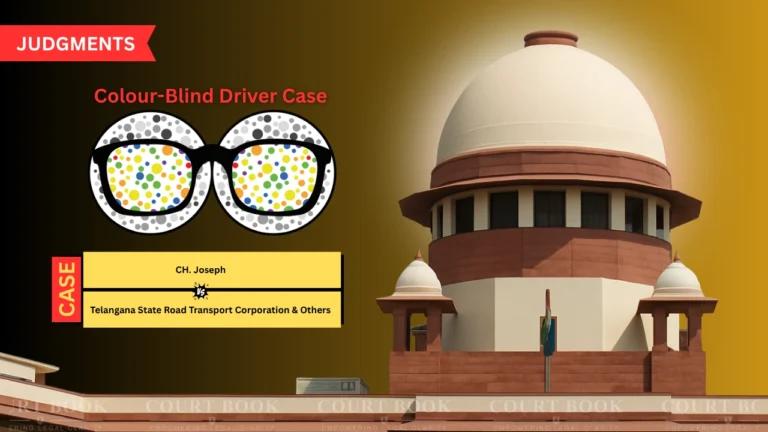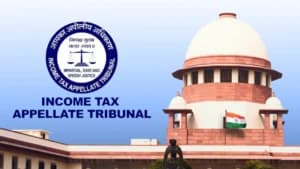The Supreme Court directed TSRTC to reinstate a colour-blind driver who was retired on medical grounds. The Court ruled the action violated statutory and constitutional obligations under the 1979 settlement and disability rights law.
Case Background:
Ch. Joseph, appointed as a driver by the Telangana State Road Transport Corporation (TSRTC), was declared medically unfit due to colour blindness after a routine check-up. His request for alternative employment was denied by the corporation, citing internal rules, and he was forcibly retired with additional monetary benefits as per the policy.
Read also:- Supreme Court Rules: Commuting Accidents Covered Under Employment Compensation – Key Legal Insights
Joseph challenged this in the High Court, where a single judge initially ruled in his favour. However, TSRTC appealed, and the Division Bench set aside the single judge’s ruling, leading Joseph to approach the Supreme Court.
“The employer’s discretion ends where the employee’s dignity begins.”— Supreme Court, August 01, 2025
The apex court found TSRTC’s action arbitrary and illegal for several reasons:
- No Effort to Offer Alternative Job:
The Corporation failed to make a genuine attempt to reassign Joseph to a non-driving role, like a “Shramik” post, despite his willingness. - 1979 Settlement Still Binding:
Clause 14 of the 1979 Memorandum of Settlement clearly provides for alternate employment for colour-blind drivers with pay protection. The Court held this agreement as still valid and not overridden by the later 1986 agreement.
Read also:- SC Dismisses Review Plea in Harkaish Bhadoria vs Union of India Case
- Internal Circulars Can’t Override Settlements:
Circulars issued in 2014 and 2015 that barred alternate jobs for colour-blind drivers were deemed mere administrative orders and not legally binding. - Misapplication of Earlier Judgments:
The High Court wrongly relied on the B.S. Reddy case, which dealt only with statutory disability under the 1995 Act, ignoring binding industrial settlements.
“Joseph shall be reinstated in a suitable non-driving post with the same pay and 25% arrears.”
The SC directed TSRTC to:
- Reinstate Joseph in a suitable post within eight weeks.
- Provide the same pay scale as of his last working day (06.01.2016).
- Pay 25% of arrears in salary, allowances, and benefits.
- Count the entire period as continuous service for all employment purposes.
Read also:- SC Adjourns CPIL’s Plea Against Centre; Next Hearing on August 5
This judgment reinforces the importance of:
- Industrial settlements as legally binding instruments.
- Reasonable accommodation for employees who acquire disabilities.
- Upholding Articles 14 and 21 — the right to equality and dignity — in employment.
Case Title: CH. Joseph vs The Telangana State Road Transport Corporation & Others
Judgment Date: 01 August 2025
Appeal Type: Civil Appeal (@ SLP (Civil) No. 36278 of 2017)
Appellant: CH. Joseph
Respondents: Telangana State Road Transport Corporation (TSRTC) & Others















